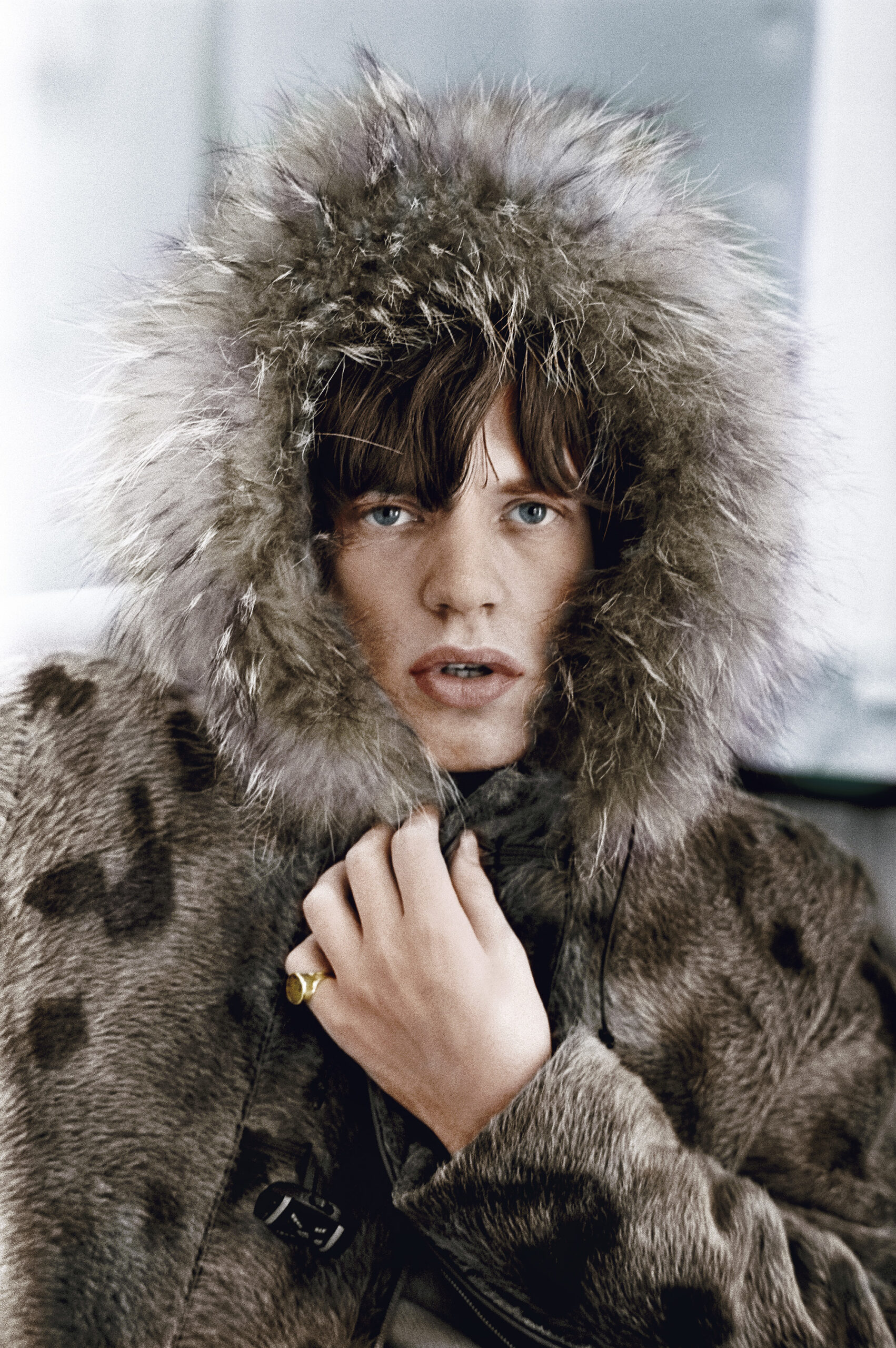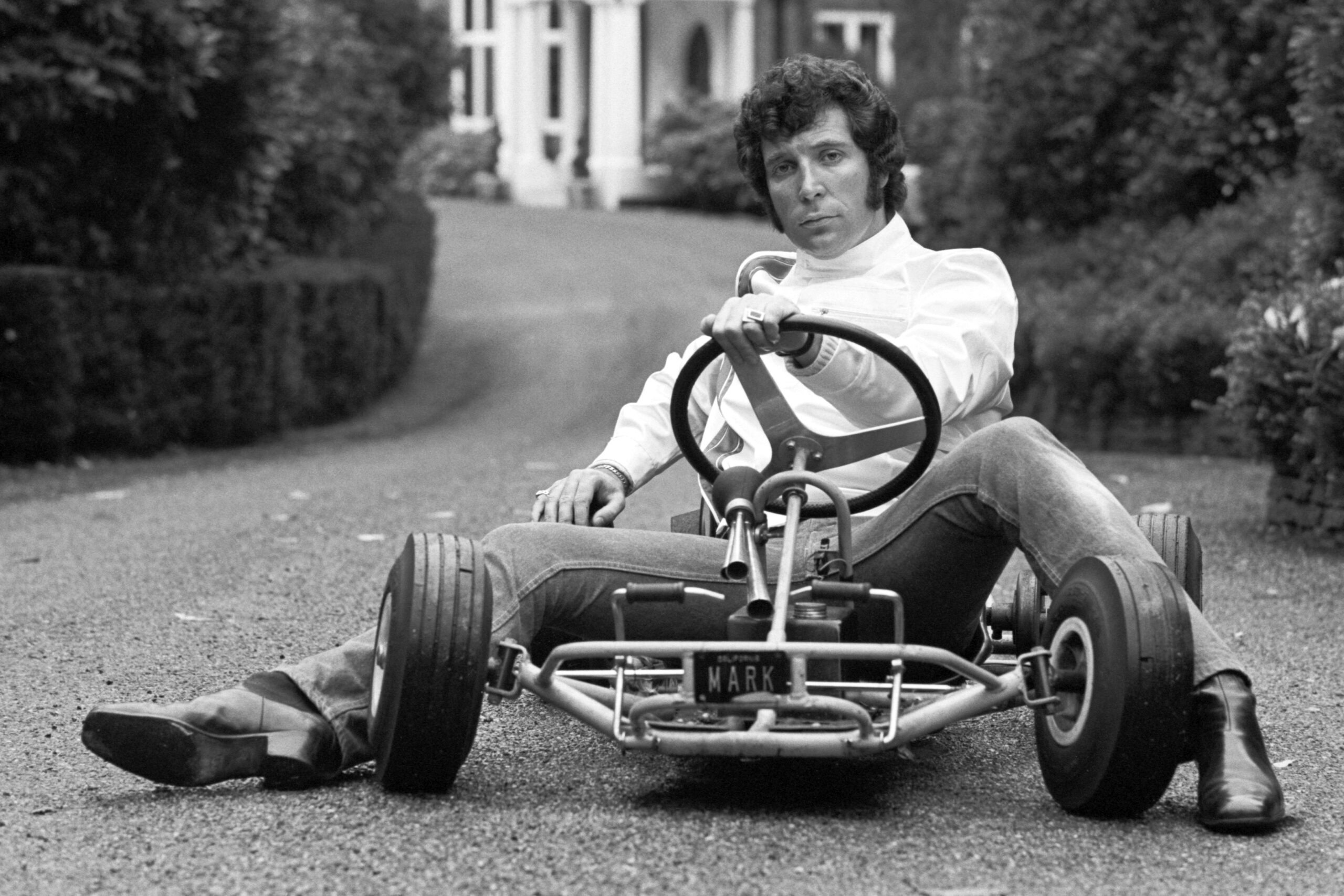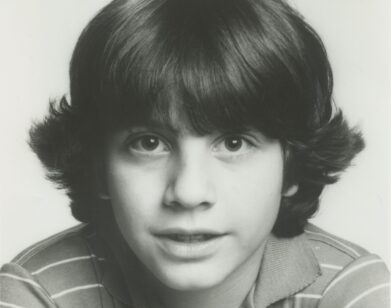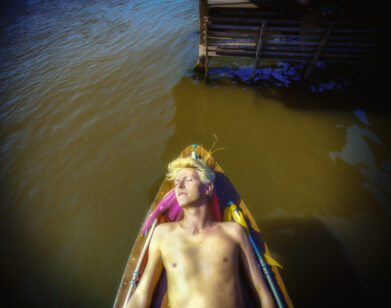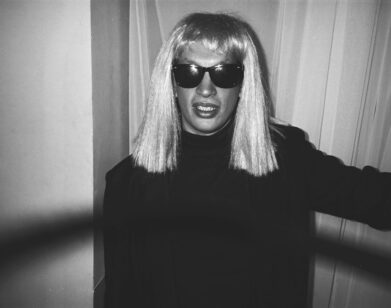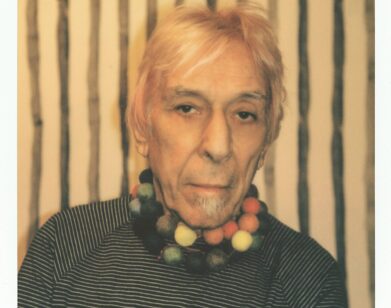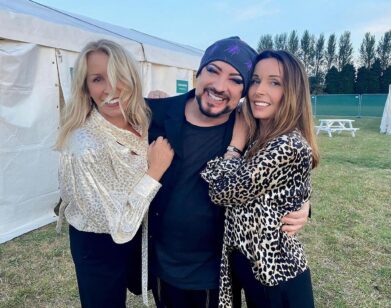icons
Inside the Terry O’Neill Retrospective at Fotografiska New York
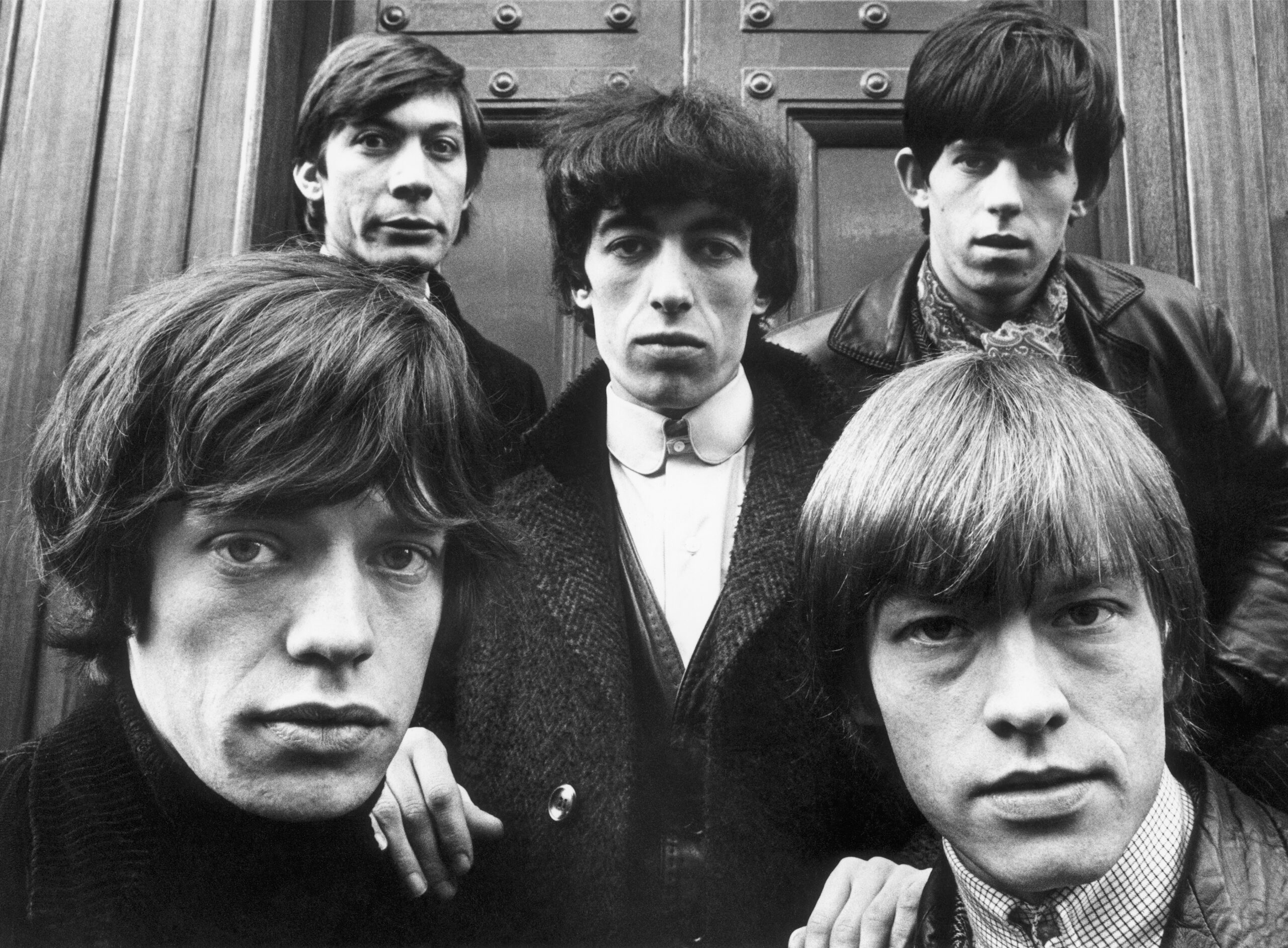
The Rolling Stones outside St. George’s Church in Hanover Square, London, 17th January 1964. Clockwise from bottom left: Mick Jagger, Charlie Watts, Bill Wyman, Keith Richards and Brian Jones (1942 – 1969).
It’s never been easier to feel close to your favorite star—all it takes is a few clicks to find a selfie on their Instagram. But before social media, and even the days of peak paparazzi, Terry O’Neill defined the concept of the celebrity story in photographs you can find at Stars, a new exhibition celebrating a half-century of the photographer’s legacy at Fotografiska New York. “I remember my parents talking about stars in the mid-seventies,” says Fotografiska chair Yoram Roth. “They may as well have been talking about Bible characters. These were people who were so unknown to them that every snippet of information was passed around like scripture. To see a photo in a glossy magazine weekly or monthly made you feel like you had access to something that we now take for granted.” Just before the show’s opening, Roth made time to walk us through some of O’Neill’s most iconic images of Faye Dunaway, Mick Jagger, Elizabeth Taylor, and David Bowie.
———
THE ROLLING STONES
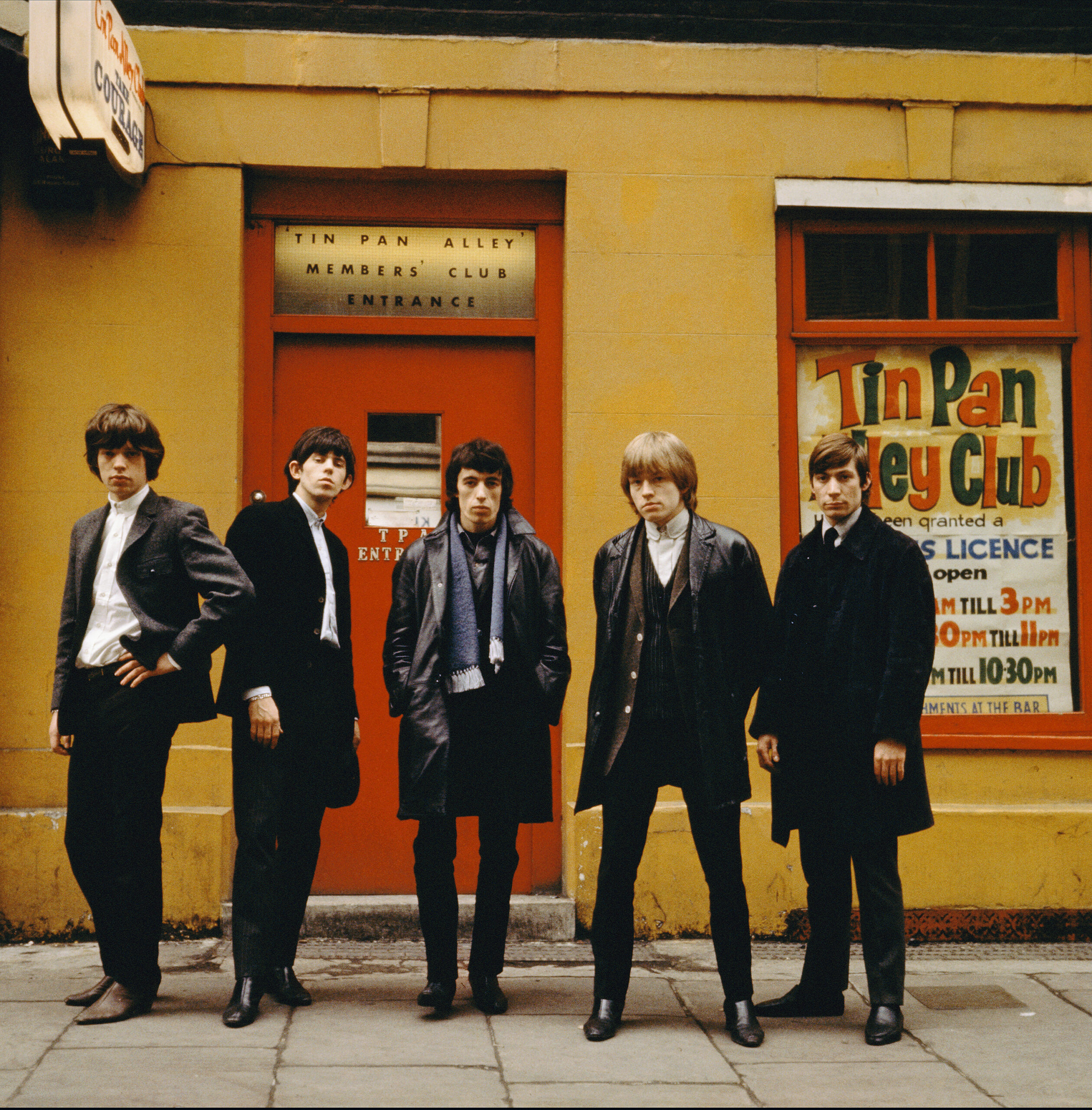
The Rolling Stones line up outside the Tin Pan Alley Club in London, 1963. From left to right, Mick Jagger, Keith Richards, Bill Wyman, Brian Jones (1942 – 1969) and Charlie Watts.
“This is an incredibly staged image. They had spent a long time together, but that was the first time that he officially shot them. What I love about it is that it gave us a whole new language of how you shoot a band. In the 1960s, most bands were still wearing matching outfits and haircuts, and he really helped establish the Rolling Stones as different and as the bad boys. This is one of the images that kicked that off.”
———
KEITH RICHARDS
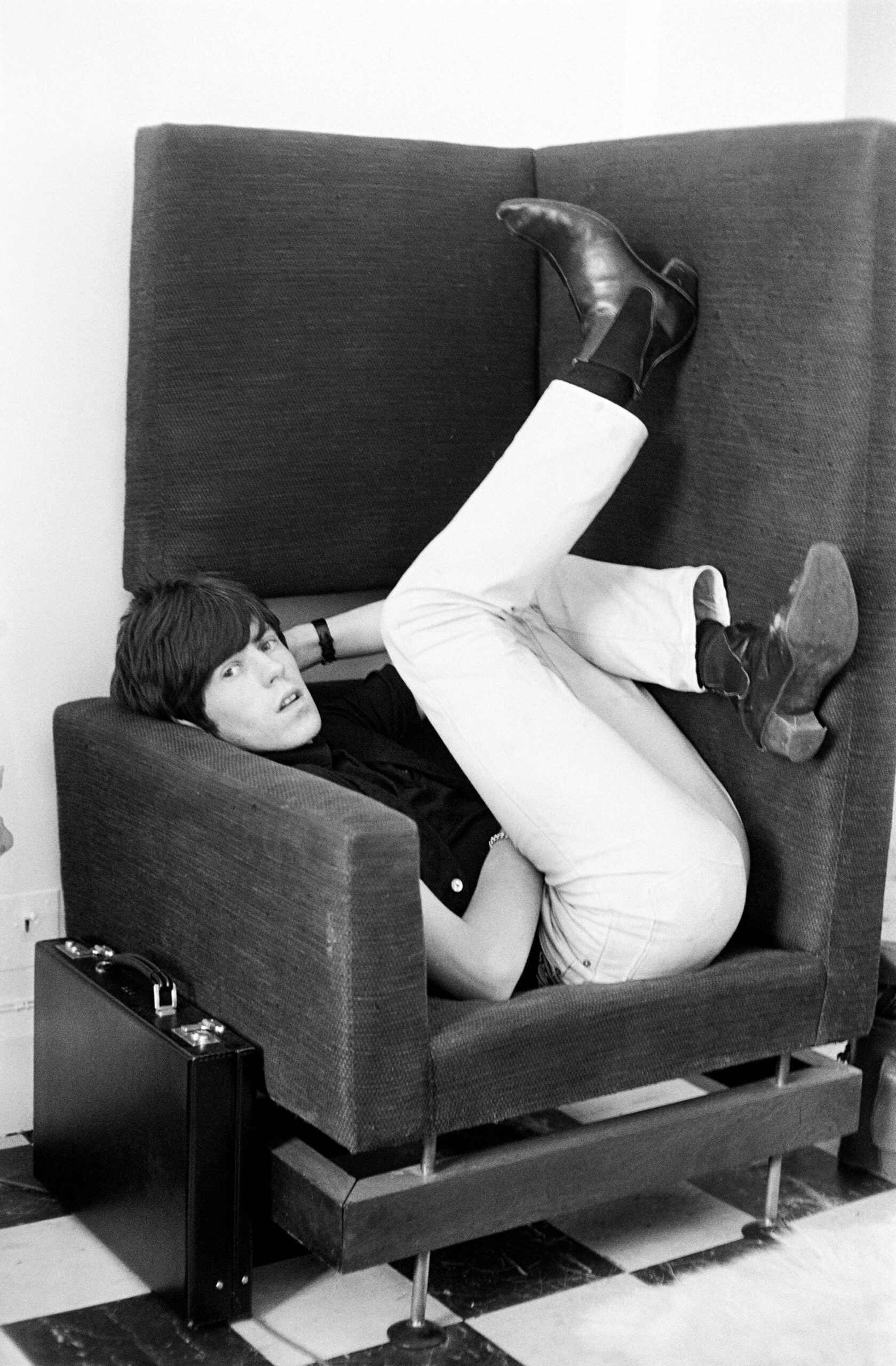
Keith Richards resting in an arm chair before an appearance on the television show ‘Ready, Steady, Go’, 23rd July 1964.
“By 1964, these aren’t staged images. That’s somebody saying, ‘Dude, just chill here for a second,’ and they capture this image of Keith folded into this chair feeling comfortable in front of Terry. These are people who are clearly collaborating, that’s not just a photo shoot.”
———
MICK JAGGER
“Mick was already, then, playing with a femininity that was sort of unknown to the rock and roll market. Rock and roll acts were either supposed to be harmless boy bands, or they were supposed to be tough. And Mick definitely wasn’t. The ring, the hand pose and the fur hoodie were all a fashion statement. It’s fun to see Mick and Terry having fun this way because there’s got to be a level of trust here.”
———
FAYE DUNAWAY
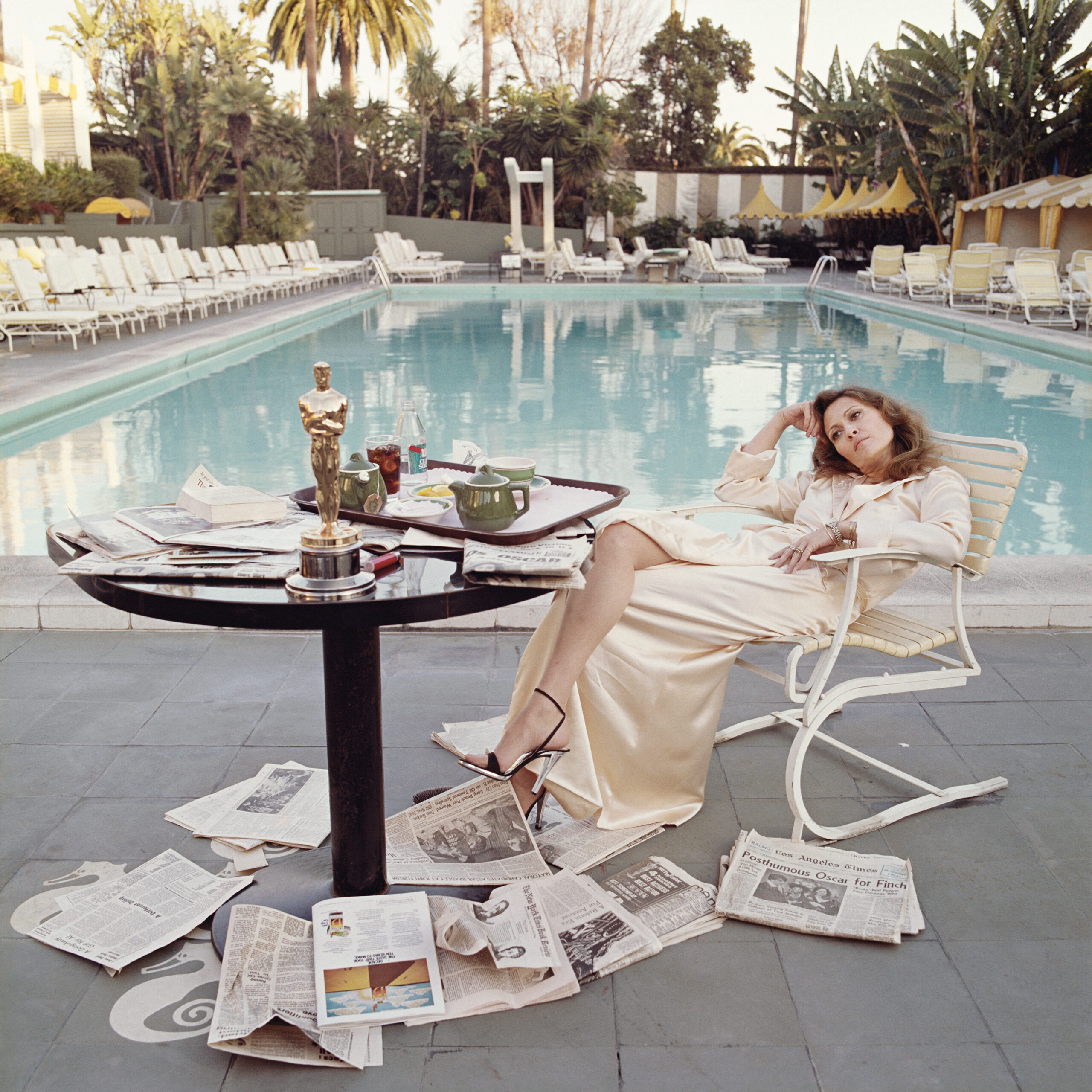
American actress Faye Dunaway sits by the pool at the Beverley Hills Hotel in Los Angeles, the morning after the Academy Awards ceremony, where she won the Oscar for ‘Best Actress in a Leading Role’ for her part in Sidney Lumet’s satirical film “Network” on March 29, 1977.
“I happened to be at the Beverly Hills pool last week, and it looks exactly like this. It’s unchanged. My understanding is that they were in a romantic relationship at this time and this shot is real. It’s the morning after the Academy Awards and breakfast is served, there’s a lighter on the table, there’s every paper that reported on it. It’s that moment where you realize your life is going to change forever, and in a profession that can be so fraught with insecurity as acting, it’s a beautiful moment.”
———
FRANK SINATRA
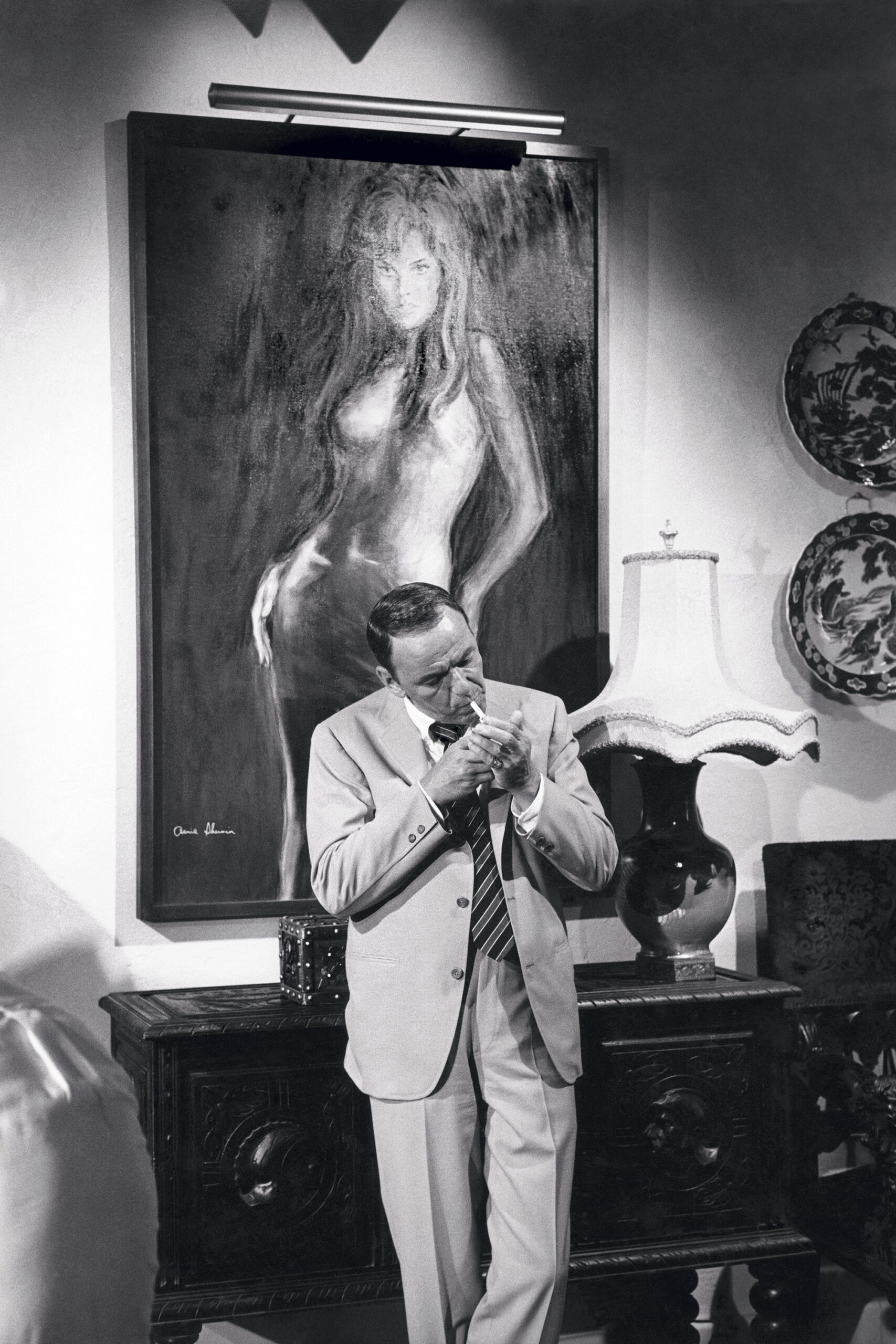
American singer and actor Frank Sinatra on set during the making of ‘The Lady in Cement’ in Miami, 1968.
“This is sacrilege, but I’m not a huge Frank Sinatra fan. These are the opposite of what I like about Terry’s work. Yes, he’s capturing him within those sets, and he’s capturing him within those moments, but it doesn’t seem like they have a relationship. He’s always pretty far away from Frank.”
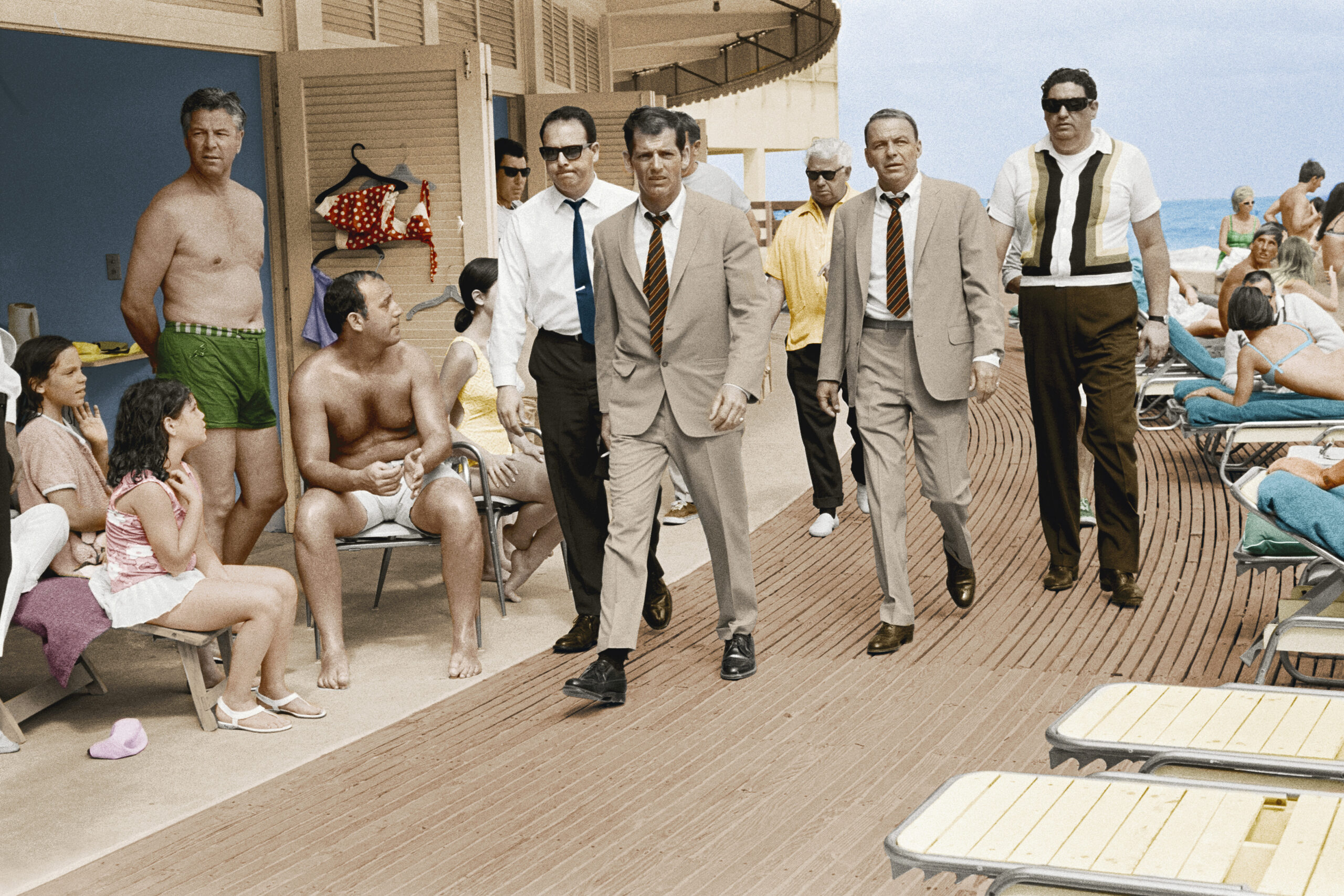
Singer and actor Frank Sinatra, with his minders and his stand in (who is wearing an identical outfit to him), arriving at Miami beach while filming, ‘The Lady in Cement’, 1968.
“The image with the bodyguards and the handlers illustrates the relationship the best. Frank was not somebody you got close to, and Terry was able to take some pictures, but I can’t say that they’re intimate. They feel standoffish. They feel distant. Whereas, with the other ones, he got in real close. But they are a wonderful view into a time.”
———
TOM JONES
“There’s an incredible intimacy in spending time with a singer and actor at the peak of his career, in his own home. It’s his kid’s go-kart that he clearly doesn’t fit on, but it tells us everything about Tom Jones. At the time, he was the definition of what a cool man looked like. He can even look unbelievably cool in a kids go-kart. That’s a confidence and a trust, again, that very few other photographers could elicit from their subject.”
———
DAVID BOWIE and ELIZABETH TAYLOR
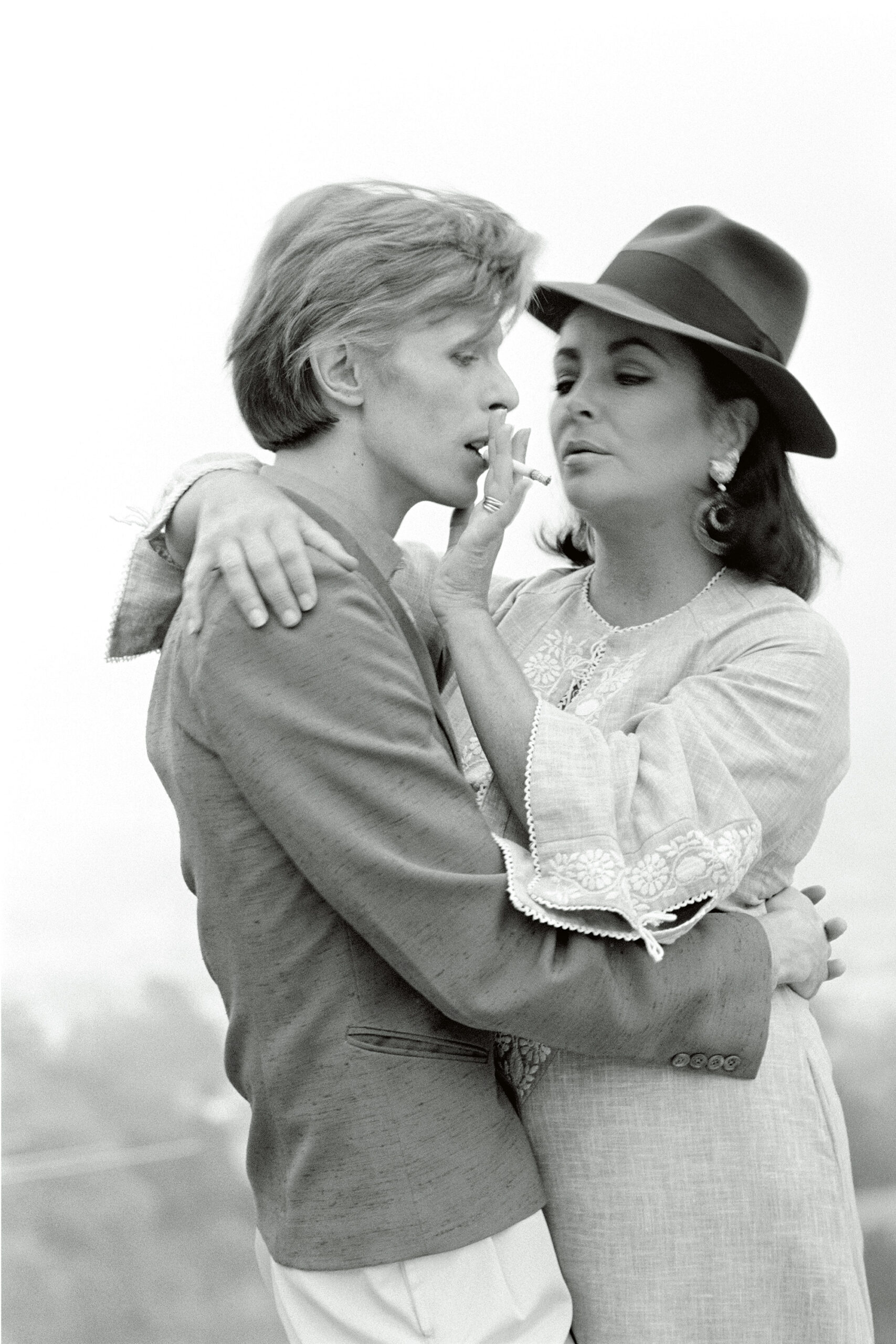 British singer & songwriter David Bowie and actress Elizabeth Taylor meet for the first time at George Cukor’s house in Beverly Hills, 1974. Taylor wears a chambray kaftan by Bill Tice, who won a Coty Award the same year.
British singer & songwriter David Bowie and actress Elizabeth Taylor meet for the first time at George Cukor’s house in Beverly Hills, 1974. Taylor wears a chambray kaftan by Bill Tice, who won a Coty Award the same year.
“What an incredible moment. They’ve clearly been geeking around for hours. She’s wearing his hat. She’s letting him hit her cigarette, and they’re half dancing, half talking. It’s incredibly intimate to bring your hand up to somebody else’s mouth. It’s a photo you wouldn’t stage that way nowadays. It takes a willingness of the participants to not be shown from their best possible angle and to just let that moment play out.”
———
ROBERT REDFORD and RICHARD HELMS
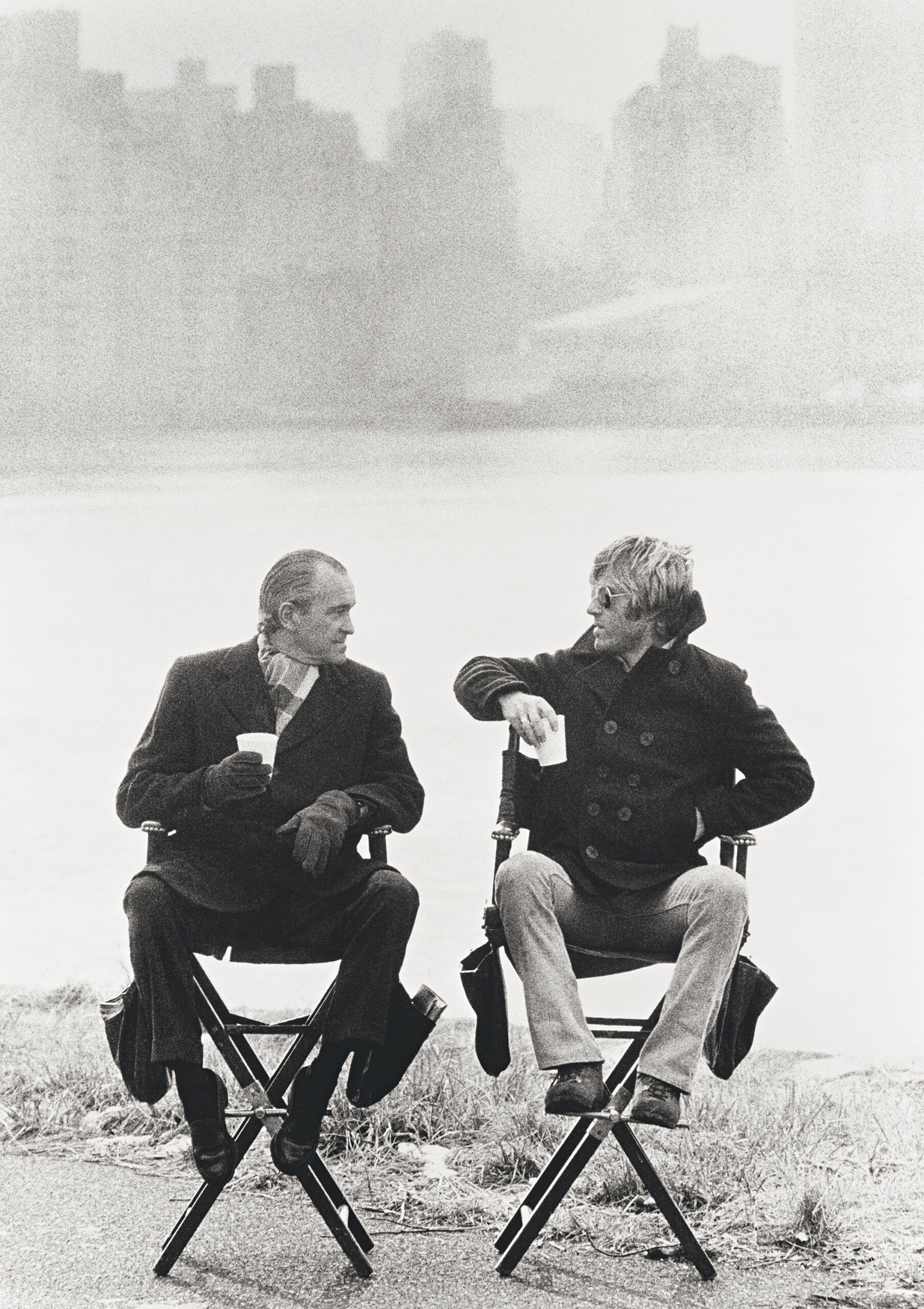
Actor Robert Redford having a conversation with Richard Helms, former director of the CIA, during the filming of ‘Three Days of the Condor’ on East River Lane, Wards Island, New York, 1974.
“They’re clearly on set, but I don’t understand why their feet have to be a full two feet in the air. Those same chairs are available in a way where your feet can rest on the ground. But I love the shot composition with the three layers of them talking, the cityscape, and the water between them. It’s very classic, and navy peacoats never go out of style. But that’s Redford. He’s just cool.”
———
SEAN CONNERY as JAMES BOND
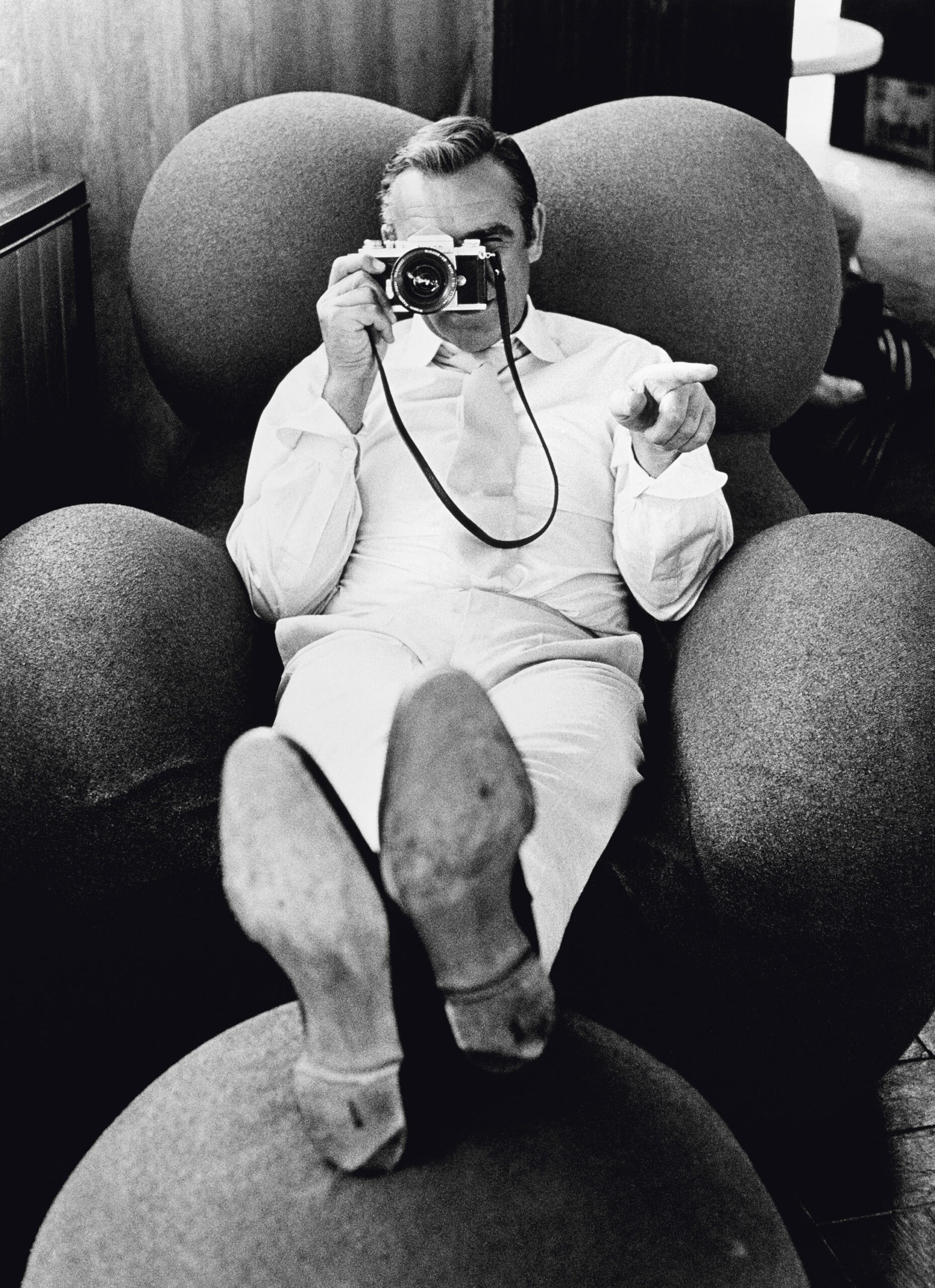
Scottish actor Sean Connery peers through a camera on the set of the James Bond film ‘Diamonds Are Forever’, Las Vegas, 1971.
“Sean Connery directing Terry’s camera back at him is a fun image. I would say that Terry O’Neill gave us the definition of how we see James Bond, because it was ultimately his direction and staging that created that mythology. Nowadays, shoots come with mood boards and poses that are often already lit with stand-ins. You get the celebrity in, they strike the seven poses, and they’re out seven minutes later. But this was photography, it’s not composited. He actually did three of the Bonds: Sean Connery, Roger Moore, Pierce Brosnan, and Daniel Craig.”
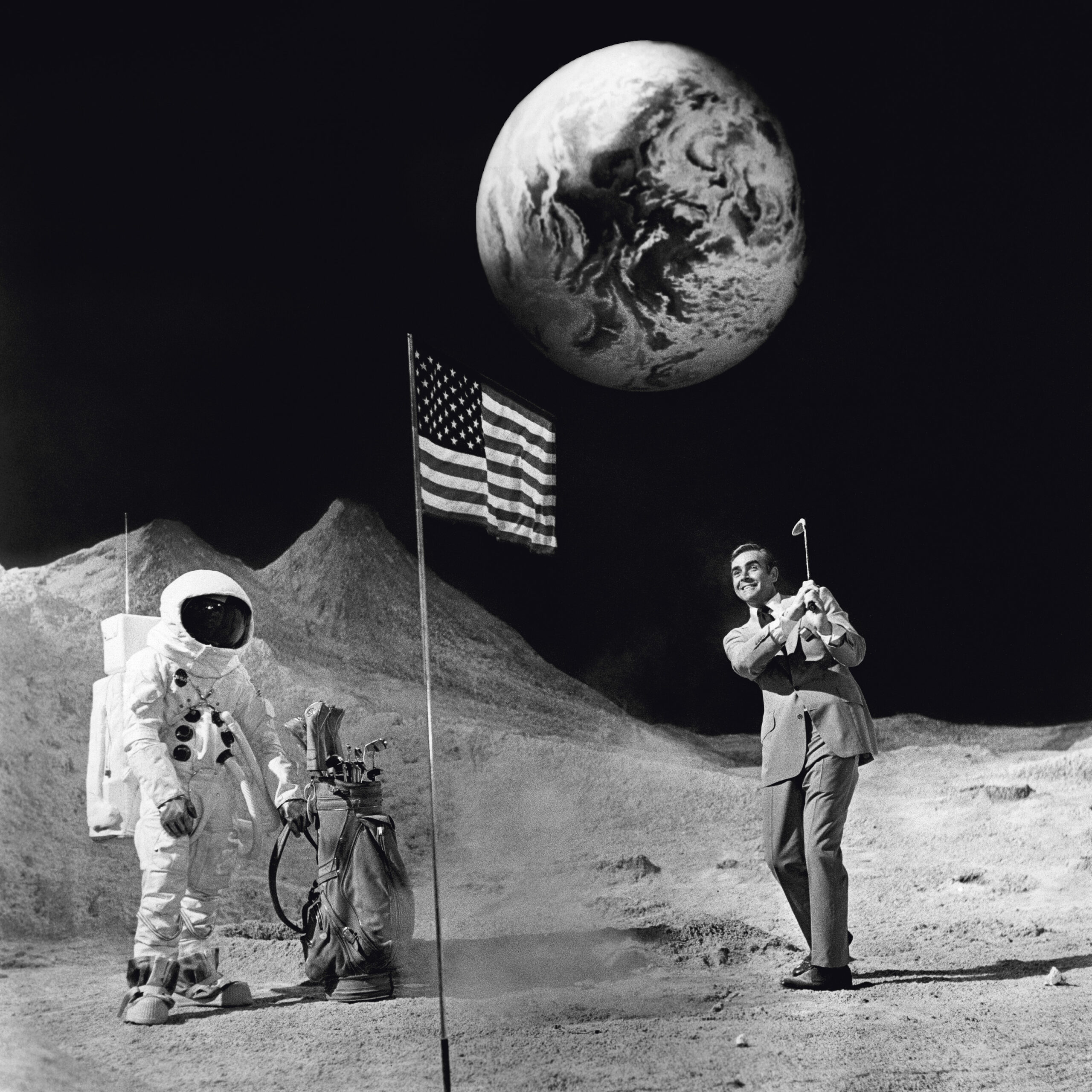
Scottish actor Sean Connery as James Bond plays golf on a deserted film set in Pinewood Studios in London during the filming of ‘Diamonds Are Forever’, 1971.
“I did not know Terry O’Neill was part of the scheme to fake the moon landing, and Sean Connery was in on it. What do you know?”
———
RAQUEL WELCH
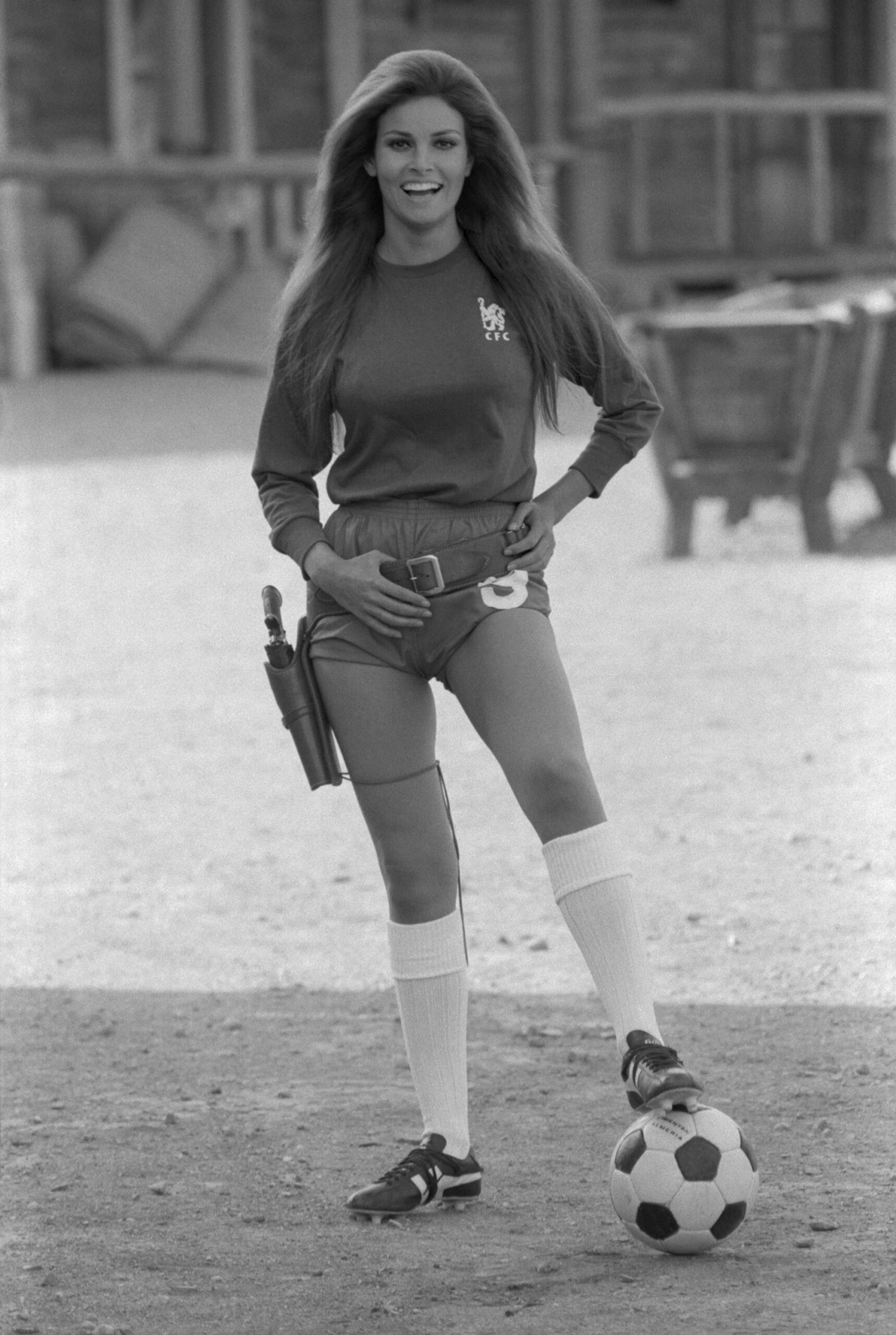
American actress Raquel Welch on the Spanish set of the western ‘Hannie Caulder’, directed by Burt Kennedy, 1971. She is wearing a number 9 Chelsea Football Club (CFC) strip.
“There’s a lot going on. Her hair is perfectly coiffed in this soccer outfit with a gun holster. I love that they were playing a game between a set on this western film. There’s this openness and joy in the image, and again, there’s so much comfort between the subject and the photographer that I would’ve loved to have seen them on this shoot.”
———
RICHARD BURTON and ELIZABETH TAYLOR
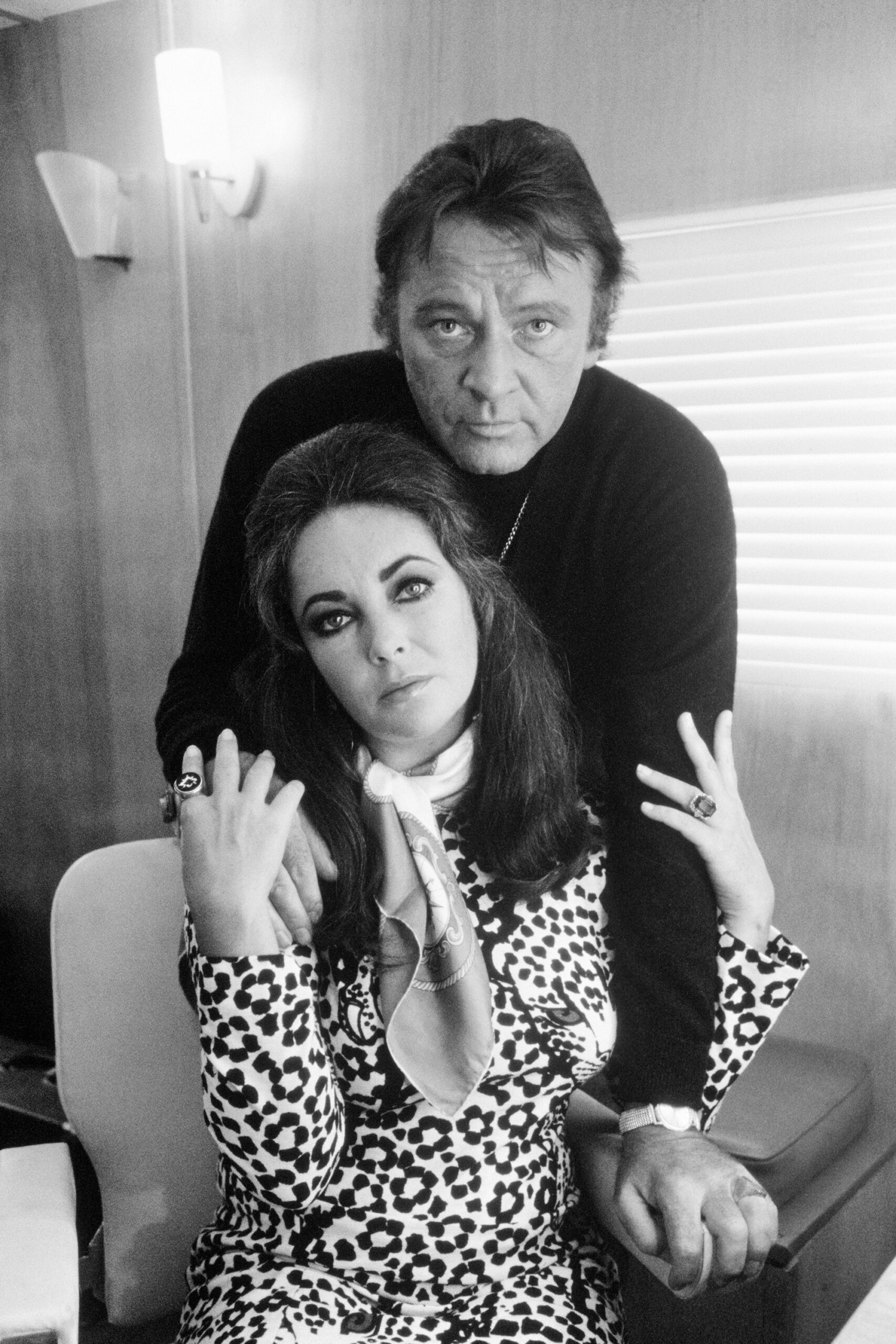
Welsh actor Richard Burton with his wife, actor Elizabeth Taylor in his trailer on location in Hounslow, London, 1971, during the filming of ‘Villain’, directed by Michael Tuchner.
“We don’t know everything, but we know a lot about their relationship. It was on again, off again. It was the great love, and they were media-savvy people, so they knew the power of photography and how photography had hurt them in their lives. Terry O’Neill at that point was considered at the top of his game, and to allow him to come in and shoot them was a moment of trust. These were superstars.”

